CWS Market Review – November 7, 2023
(This is the free version of CWS Market Review. If you like what you see, then please sign up for the premium newsletter for $20 per month or $200 for the whole year. If you sign up today, you can see our two reports, “Your Handy Guide to Stock Orders” and “How Not to Get Screwed on Your Mortgage.”)
Seven Up Days in a Row
The stock market is suddenly hot again. The S&P 500 rose for its seventh day in a row today. This is the longest winning streak in two years. Over those seven days, the index has gained 6.3%. The S&P 500 is now above its 50- and 200-day moving averages.
Six-day rallies are pretty common but getting to a seventh up day has historically been a challenge for the market.
I urge investors to remain skeptical of sharp upticks in a bear market. The stock market loves to fool investors by convincing us that things are safe. Then, once we take the bait, we get slammed by another downdraft.
Interestingly, economically cyclical stocks have been lagging during this mini bull run. In particular, materials, energy and industrial stocks have not joined in the fun. That usually happens when the economy is weak or perceived to be losing strength.
Here’s an interesting chart. This shows the S&P 500 (black) compared with the S&P 500 Industrials (blue) and S&P 500 Materials (green).
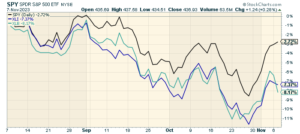
Notice how the two cyclical sectors have lagged the S&P 500, and it’s gotten worse in recent days. These rotations typically end once the Fed starts lowering rates. That may not be too far away.
Clorox Soars on Earnings Beat
Last week, I highlighted Clorox (CLX) for you. I told you that it was about to report earnings after the close on Wednesday.
In the earnings report, the company said it made 49 cents per share for its fiscal Q1. That was a massive earnings beat.
Wall Street had been expecting Clorox to report a loss of 22 cents per share. The company was hit with a nasty cyberattack which scared investors. Its business was hit hard but it will survive.
On Thursday, the stock soared as much as 11% during the trading day before closing with a gain of 6.6%. Clorox has continued to rally since then. On Friday, Monday and today, Clorox gained another 7.7% combined. Add it all up and that’s a 14.9% gain in just four trading days.
Clorox slashed its full-year earnings guidance to a range of $4.30 to $4.80 per share. The old range was $5.60 to $5.90 per share. That stings, but Clorox will move on and remain profitable.
I wish I could take credit for having predicted the big gain for Clorox, but that’s not accurate. Instead, I told you to steer clear of Clorox and to wait and see if the company has addressed its problems. Again, the key is to determine how fixable a company’s problems are. With Clorox, the problems seem to be fixable.
So I won’t take credit for the big gain, but I will stand by the strategy of waiting for good stocks to falter. It’s not hard, but it requires patience and discipline. Clorox is about as blue as a blue chip can get. It’s raised its dividend for 21 straight years.
An analyst at Citigroup said, “Clorox’s reduced FY24 guidance looks conservative, and that it expects Clorox to fully recover from the cyberattack by the end of FY25, adding that a 30% selloff since August makes the stock compelling.” I agree.
WeBroke
Of course, just because a stock is down doesn’t mean it’s cheap. It only means that it’s less expensive than it was before. That brings me to the sad story of WeWork (WE), the office space-sharing company. WeWork filed for bankruptcy today. That wasn’t unexpected.
The WeWork story is almost comically inept. Apple TV made a miniseries about it with Anne Hathaway and Jared Leto.
Few companies have gone from superstars to bust in such a short time. At one point, WeWork was worth $47 billion. The company tried to go public, but the offering was canceled.
It filed “sloppy” filing documents. In its S-1 document, WeWork wrote, “We are a community company committed to maximum global impact. Our mission is to elevate the world’s consciousness.”
I’m not kidding you. It really says that.
WeWork eventually went public in 2021. The company’s CEO, Adam Neumann, received a lot of attention for his unorthodox management style. Two years ago, WeWork was going for $400 per share. Before trading in WeWork was halted, it got down to 85 cents.
WeWork was a celebrated tech startup, but in reality, it was a real estate company that got tangled up in too many expensive lease agreements. The company rented office space, then retrofitted it and subleased it to startups and freelancers. At one point, WeWork was the largest tenant in Manhattan.
As long as interest rates were low, the idea worked. Once rates started to rise, then things changed. Soon, the company hemorrhaged money. A few months ago, it announced a 1-for-40 reverse stock split. The stock is down 98% in this year alone. So much for the world’s consciousness.
Not a Great Jobs Report
Last Friday, we got the October jobs report from the Labor Department. According to the government, the U.S. economy created 150,000 net new jobs last month. That was below expectations for 170,000 new jobs, and the gain was nearly half the gain we had in September.
The unemployment rate increased to 3.9%. That’s its highest level since January 2022. Here’s a look at the unemployment rate. Note that historically, when the unemployment rate goes up by a little, there’s a good chance that it will go up by a lot.
The broader U-6 unemployment rate increased to 7.2%. The labor force participation rate declined slightly to 62.7%.
Right now, the most important stat is wages, and that’s not looking very good. Last month, average hourly earnings rose by 0.2%. That was 0.1% less than expected. Over the last year, average hourly earnings are up 4.1%. Unfortunately, inflation has taken a large bite of that.
From a sector standpoint, health care led with 58,000 new jobs. Other leading gainers included government (51,000), construction (23,000) and social assistance (19,000). Leisure and hospitality, which has been a top job gainer, added 19,000 as well.
Manufacturing posted a loss of 35,000, all but 2,000 of which came because of the auto strikes. Transportation and warehousing saw a decline of 12,000 while information-related industries lost 9,000.
The important takeaway from this report is that it will take some heat off the Federal Reserve. The futures market currently thinks there’s less than a 10% chance that the Fed will hike next month. How things have changed! One month ago, the odds were at 36%. Futures traders now think the odds are in favor of the Fed cutting rates in less than six months. If that’s right, we could be in store for a sector rotation soon.
That’s all for now. I’ll have more for you in the next issue of CWS Market Review.
– Eddy
P.S. If you want more info on our ETF, you can check out the ETF’s website.
Posted by Eddy Elfenbein on November 7th, 2023 at 10:25 pm
The information in this blog post represents my own opinions and does not contain a recommendation for any particular security or investment. I or my affiliates may hold positions or other interests in securities mentioned in the Blog, please see my Disclaimer page for my full disclaimer.
-
-
Archives
- April 2025
- March 2025
- February 2025
- January 2025
- December 2024
- November 2024
- October 2024
- September 2024
- August 2024
- July 2024
- June 2024
- May 2024
- April 2024
- March 2024
- February 2024
- January 2024
- December 2023
- November 2023
- October 2023
- September 2023
- August 2023
- July 2023
- June 2023
- May 2023
- April 2023
- March 2023
- February 2023
- January 2023
- December 2022
- November 2022
- October 2022
- September 2022
- August 2022
- July 2022
- June 2022
- May 2022
- April 2022
- March 2022
- February 2022
- January 2022
- December 2021
- November 2021
- October 2021
- September 2021
- August 2021
- July 2021
- June 2021
- May 2021
- April 2021
- March 2021
- February 2021
- January 2021
- December 2020
- November 2020
- October 2020
- September 2020
- August 2020
- July 2020
- June 2020
- May 2020
- April 2020
- March 2020
- February 2020
- January 2020
- December 2019
- November 2019
- October 2019
- September 2019
- August 2019
- July 2019
- June 2019
- May 2019
- April 2019
- March 2019
- February 2019
- January 2019
- December 2018
- November 2018
- October 2018
- September 2018
- August 2018
- July 2018
- June 2018
- May 2018
- April 2018
- March 2018
- February 2018
- January 2018
- December 2017
- November 2017
- October 2017
- September 2017
- August 2017
- July 2017
- June 2017
- May 2017
- April 2017
- March 2017
- February 2017
- January 2017
- December 2016
- November 2016
- October 2016
- September 2016
- August 2016
- July 2016
- June 2016
- May 2016
- April 2016
- March 2016
- February 2016
- January 2016
- December 2015
- November 2015
- October 2015
- September 2015
- August 2015
- July 2015
- June 2015
- May 2015
- April 2015
- March 2015
- February 2015
- January 2015
- December 2014
- November 2014
- October 2014
- September 2014
- August 2014
- July 2014
- June 2014
- May 2014
- April 2014
- March 2014
- February 2014
- January 2014
- December 2013
- November 2013
- October 2013
- September 2013
- August 2013
- July 2013
- June 2013
- May 2013
- April 2013
- March 2013
- February 2013
- January 2013
- December 2012
- November 2012
- October 2012
- September 2012
- August 2012
- July 2012
- June 2012
- May 2012
- April 2012
- March 2012
- February 2012
- January 2012
- December 2011
- November 2011
- October 2011
- September 2011
- August 2011
- July 2011
- June 2011
- May 2011
- April 2011
- March 2011
- February 2011
- January 2011
- December 2010
- November 2010
- October 2010
- September 2010
- August 2010
- July 2010
- June 2010
- May 2010
- April 2010
- March 2010
- February 2010
- January 2010
- December 2009
- November 2009
- October 2009
- September 2009
- August 2009
- July 2009
- June 2009
- May 2009
- April 2009
- March 2009
- February 2009
- January 2009
- December 2008
- November 2008
- October 2008
- September 2008
- August 2008
- July 2008
- June 2008
- May 2008
- April 2008
- March 2008
- February 2008
- January 2008
- December 2007
- November 2007
- October 2007
- September 2007
- August 2007
- July 2007
- June 2007
- May 2007
- April 2007
- March 2007
- February 2007
- January 2007
- December 2006
- November 2006
- October 2006
- September 2006
- August 2006
- July 2006
- June 2006
- May 2006
- April 2006
- March 2006
- February 2006
- January 2006
- December 2005
- November 2005
- October 2005
- September 2005
- August 2005
- July 2005
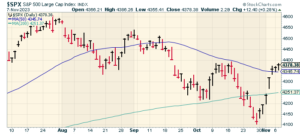
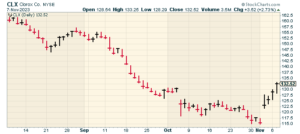
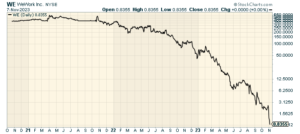
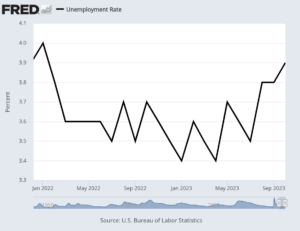
 Eddy Elfenbein is a Washington, DC-based speaker, portfolio manager and editor of the blog Crossing Wall Street. His
Eddy Elfenbein is a Washington, DC-based speaker, portfolio manager and editor of the blog Crossing Wall Street. His